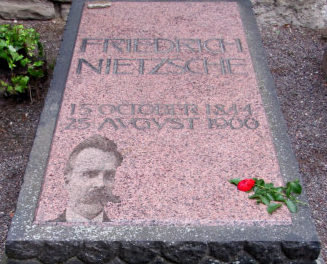Been a busy week. Really wanted to get this edition of Wobert Wednesday out on time, but no such luck. Day late, but not a dollar short I hope.
Speaking of busy, I must say that Mrs. Robert and I are extremely proud of all of our children, but our middle spawn has surpassed us as far as adulting milestones go. She closed on her very own place, a condo, today. She, and the bank, own it. All hers. No renting. She’s moving straight from our place to her own. She is 23. We were much older than that when we bought our first house.
So, major props to her!!! Way to go!!! Wooooo-hooooo!!!!
Two gone. One to go.
On to John Locke.
Like Marty, I had to do some reading to catch up on good Mr. Locke. Most certainly, Americans owe a lot to Locke, perhaps more so than any other philosopher for the political and social ideas that our founding documents were built upon. Locke is very much an empiricist as Marty noted. I too can see why he appeals to both Marty and Bjorn. That’s their gig all the way.
What I find interesting about Locke are where I think he’s either a hypocrite or where he has inconsistencies in his ideas.
First, the hypocrisy. In my short bit of reading, I liked that Locke was against slavery as a concept, yet he had a financial interest in a slave trading company. He was also influential in the drafting of the Fundamental Constitutions of Carolina which enshrined slavery and a quasi-feudal aristocracy and gave all free men absolute power over their slaves.
Locke also wrote in favor of child labor. In. Favor. Of. Child. Labor. He wrote: “the children of labouring people are an ordinary burden to the parish, and are usually maintained in idleness, so that their labour also is generally lost to the public till they are 12 or 14 years old.” Also that “working schools” be set up in each parish in England for poor children so that they will be from infancy [three years old] inured to work.” He outlines the economics of these schools, arguing not only that they will be profitable for the parish, but also that they will instill a good work ethic in the children. These are from Wikipedia, but are cited if you want to go look them up.
So, we have this paragon of individual liberty who is considered the father of philosophical liberalism, a man who influenced Voltaire greatly, who wrote against slavery, yet profited from the trade and worked to keep it dominant. He was basically for anyone who was poor serving their betters. This just flies in the face of his philosophy and religious views.
In fact, the more I think about Locke and his hypocrisies, they’re very much like those of Voltaire, which makes sense. If you listen to the Voltaire episodes, I seem to recall that I was extremely critical of Voltaire for his positions in that they were for others, but not him. Listen to the episodes. They’re some of the best discussions we’ve had on the podcast and well worth it.
On to the inconsistencies, which I admit are up to interpretation as is all good discourse. Locke is where we got the term tabula rasa, meaning blank slate. He believed mankind is born as a total blank slate. There is nothing that is inherently known. All behavior and beliefs are learned. We are the sum total of our experiences. Period.
Fine. I can see and understand that argument.
One would think that would make Locke an atheist. Certainly in modern times, total empiricism would be most likely found in an atheist, as they would be unlikely to believe in anything they could not see, smell, hear or taste. Yet, Locke was very much a believer. In fact his beliefs about the self and how that ties to liberty come from the idea that man is created in the image and likeness of God.
This is where I start to get annoyed with Locke.
For me, my entire concept of what it means to be human and what human dignity and worth are about, come from the reality of man being made in the image and likeness of God. We can reason and we can choose how to act. That’s how many theologians interpret image and likeness. I like it, because reasoning and choosing our actions are what set us apart from animals. Our inherent dignity as human beings comes from this. In this I agree with Locke… This inherent dignity is the basis for equality and freedom. That freedom includes freedom to associate, to think and worship. These are embodied in the First Amendment’s rights to freedom of speech, assembly and of religion. Thank you Mr. Locke.
BUT…..
That inherent dignity is at odds with the idea we are blank slates. A true blank slate would be an animal in my opinion, only capable of responding on an instinctual level to stimuli. Yes, animals can learn and change their behaviors based on that. But really, it’s only to avoid pain or gain pleasure. Rarely is there anything else. Some animals, service dogs especially, can sacrifice for their humans, their “pack.” It’s not universal though. I do think dogs are as close to people as any animal will come. That’s another discussion though.
Anyway, we choose our responses, or we can. Many don’t. I get that too. Many never do, but I think most do at least some of the time. We all seem to have a similar concept of right and wrong. You can argue that of course we do, because we all come from the same basic culture. Don’t kill, steal, lie, etc. 10 Commandments stuff. However, non-Christian cultures also have these basic values in common. Cultures that never had contact with Christianity or Judaism. Even atheists that reject everything from religion will adhere to these basic rules.
Augustine would call this natural law which God has written on the hearts of all men. Hard to go against Augie.
If we are all a blank slate, it seems unlikely that so much would be common to all cultures and times. Family bonds included too, by the way. Nuclear and extended families to varying degrees are common. Bonds are kept throughout life. Inter-family relationships and pairings are forbidden.
In other words our image and likeness to God and the inherent dignity that flows from that form a commonality across all time and space. That inherent dignity and commonality are the basis for much of Locke’s reasoning about liberty, even if he doesn’t always get it right. There’s a lot more to talk about. We’ll definitely have to go deeper into Locke in a future episode and more blog posts.
Locke is a great mind. He’s influential. However, he’s flawed in his reasoning. As are we all at some point or other. but that’s why Snakes and Otters exists. To hammer out differences through discussion and the examination of ideas. These are what sets man apart from animals.
These are the eternal questions we like to pointlessly discuss. Though it’s not really pointless, is it?



